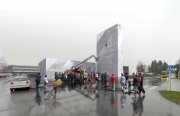Guggenheim Museum Helsinki
A Local Museum Going Global
02.12.2014
The proposed project for the Guggenheim Museum in Helsinki should above all respect the local conditions, but at the same time spread out ideas around the globe. This intention of combining the local and the global scale should be articulated architecturally.
Therefore a simple module reminding of a shipping container would be the basis for the proposed project. The Guggenheim Museum in Helsinki concentrates those modules in one building and sends out modular boxes around the world in order to export exhibitions and ideas.
The Urban Context
The site is mainly characterised by the location on the South Harbour in Helsinki. The new Guggenheim Museum in Helsinki should therefore perfectly integrate and respect the harbour's daily business. In order to distract the existing as little as possible the museum as assemblage of container like boxes has been put to the site like a temporary construction. Satellite boxes are spread out on the site as further gallery and workshop spaces. The design of the exterior spaces is kept as neutral as possible and should represent spatial generosity. The link from the pedestrian deck to the site is done by big stairs similar to an arena facing the Guggenheim Museum.
The Project
The main characteristics of the proposed design is the assemblage of modules. Basically there are two types of modules: the art- and the light box. The art boxes can be assembled to bigger exhibition spaces. The light boxes are put onto the art boxes and bring indirect natural light to the art galleries. The boxes are added to a four level high building with an overall height of 30m.
A transparent ground floor is meant to be as public as possible and accommodates all the public functions like restaurant or retail. The exhibition spaces are on the three upper levels, the event zone on level three and the offices on level four. The building has beside three main cores an alternative circulation by stairs leading like a promenade trough the museum. A big atrium from the basement to level four represents the multipurpose zone. The museum opens up to the city of Helsinki via large terraces.
The modular construction of the museum is done by steel framing. For larger spans over big exhibition spaces, the light boxes serve as bearing structure. The materiality of the cladding is reduced to five major materials: white metal facade, fritted glass, as well as building integrated photovoltaics, transparent glass for the art boxes and translucent glass for the light boxes.
Sustainability
The simplicity of the module is the basis for a sustainable project. So the elements for the construction can be optimized, prefabricated, assembled in an efficient way, as well as dismounted in the future. The combination of art- and light boxes enhances furthermore the passive solutions for a low energy consumption. The art boxes are compact and well insulated in order to keep the warm temperature inside the building during the winter. The light boxes bring indirect light into the building and reduce therefore the cooling energy during summer. The design provides the use of renewable energy sources such as biomass for heating, building integrated photovoltaics and heat recovery of warm temperature from the light boxes.
Therefore a simple module reminding of a shipping container would be the basis for the proposed project. The Guggenheim Museum in Helsinki concentrates those modules in one building and sends out modular boxes around the world in order to export exhibitions and ideas.
The Urban Context
The site is mainly characterised by the location on the South Harbour in Helsinki. The new Guggenheim Museum in Helsinki should therefore perfectly integrate and respect the harbour's daily business. In order to distract the existing as little as possible the museum as assemblage of container like boxes has been put to the site like a temporary construction. Satellite boxes are spread out on the site as further gallery and workshop spaces. The design of the exterior spaces is kept as neutral as possible and should represent spatial generosity. The link from the pedestrian deck to the site is done by big stairs similar to an arena facing the Guggenheim Museum.
The Project
The main characteristics of the proposed design is the assemblage of modules. Basically there are two types of modules: the art- and the light box. The art boxes can be assembled to bigger exhibition spaces. The light boxes are put onto the art boxes and bring indirect natural light to the art galleries. The boxes are added to a four level high building with an overall height of 30m.
A transparent ground floor is meant to be as public as possible and accommodates all the public functions like restaurant or retail. The exhibition spaces are on the three upper levels, the event zone on level three and the offices on level four. The building has beside three main cores an alternative circulation by stairs leading like a promenade trough the museum. A big atrium from the basement to level four represents the multipurpose zone. The museum opens up to the city of Helsinki via large terraces.
The modular construction of the museum is done by steel framing. For larger spans over big exhibition spaces, the light boxes serve as bearing structure. The materiality of the cladding is reduced to five major materials: white metal facade, fritted glass, as well as building integrated photovoltaics, transparent glass for the art boxes and translucent glass for the light boxes.
Sustainability
The simplicity of the module is the basis for a sustainable project. So the elements for the construction can be optimized, prefabricated, assembled in an efficient way, as well as dismounted in the future. The combination of art- and light boxes enhances furthermore the passive solutions for a low energy consumption. The art boxes are compact and well insulated in order to keep the warm temperature inside the building during the winter. The light boxes bring indirect light into the building and reduce therefore the cooling energy during summer. The design provides the use of renewable energy sources such as biomass for heating, building integrated photovoltaics and heat recovery of warm temperature from the light boxes.
Kurzinfo
Museum inkl. Ausstellungs- und Veranstaltungsräumen, Büros, Werkstätten, Shop, Restaurant, Café
Status
Offener, weltweiter Wettbewerb, 2014
Größe
11.150m² NGF
Ort
Helsinki (FI)
Auslober
Solomon R. Guggenheim Foundation
Architektur
Entwufsteam: Christina Kimmerle, Fabian Wallmüller
Webtipp
www.sueddeutsche.de
Museum inkl. Ausstellungs- und Veranstaltungsräumen, Büros, Werkstätten, Shop, Restaurant, Café
Status
Offener, weltweiter Wettbewerb, 2014
Größe
11.150m² NGF
Ort
Helsinki (FI)
Auslober
Solomon R. Guggenheim Foundation
Architektur
Entwufsteam: Christina Kimmerle, Fabian Wallmüller
Webtipp
www.sueddeutsche.de
Laborgebäude
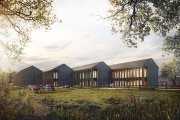
Integration und Differenz
28.06.2018
Zeitgenössische Interpretation lokaler Qualitäten: Laborgebäude des Instituts für Lebensmittelsicherheit und -hygiene, Campus Düppel, Freie Universität Berlin [ weiter ]Borg Oberndorf
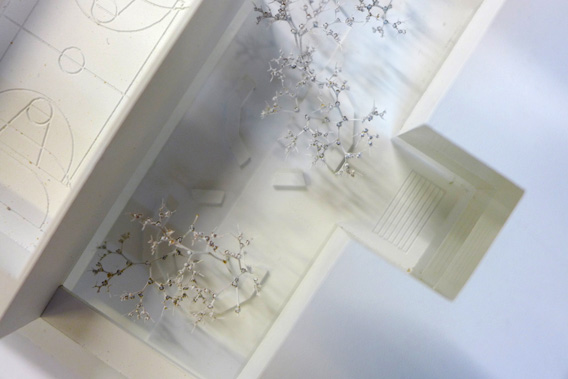
When Your Inside is Out
25.02.2015
Selbstbestimmtes Lernen, soziale Kompetenz: Das sind die Schlagwörter zeitgenössischer Pädagogik, die nicht nur Faktenwissen vermitteln, sondern junge Menschen auf dem Weg zur Bildung ihrer Persönlichkeit begleiten will [ weiter ]Guggenheim Museum Helsinki
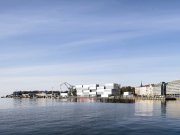
A Local Museum Going Global
02.12.2014
If Guggenheim is a global player, the new Guggenheim museum in Helsinki shall go global as well to spread ideas around the world [ weiter ]Kletterzentrum
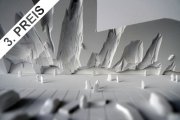
Ein Stück Natur
12.08.2014
Mit der Errichtung von Kletterhallen, so scheint es, kommt heute der Berg zum Menschen, wenn der Mensch nicht schon zum Berg kommt [ weiter ]Bundesschulgebäude
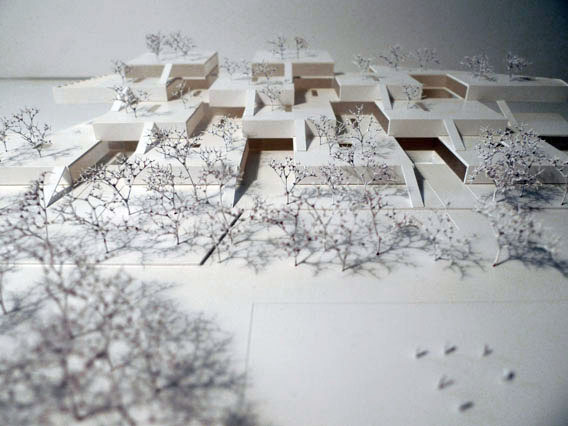
Blühende Lernlandschaften
17.12.2012
Räumliche Offenheit, vielfältige Wege und eine nichthierarchische Raumorganisation: Das Bundesschulgebäude am Teilgebiet 2, Bildungsquartier Aspern [ weiter ]KUNSTHAUS MARIBOR
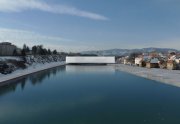
Crossing Boundaries
20.03.2010
The New Umetnostna galerija Maribor aims at irritating our points of view [ weiter ]Landespolizeikommando
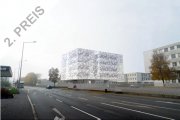
Totale Transparenz
12.12.2009
Mit einem gläsernen Kubus verleiht sich das Landespolizeikommando Steiermark ein neues Image als bürgernahe öffentliche Einrichtung [ weiter ]Gemeindezentrum





